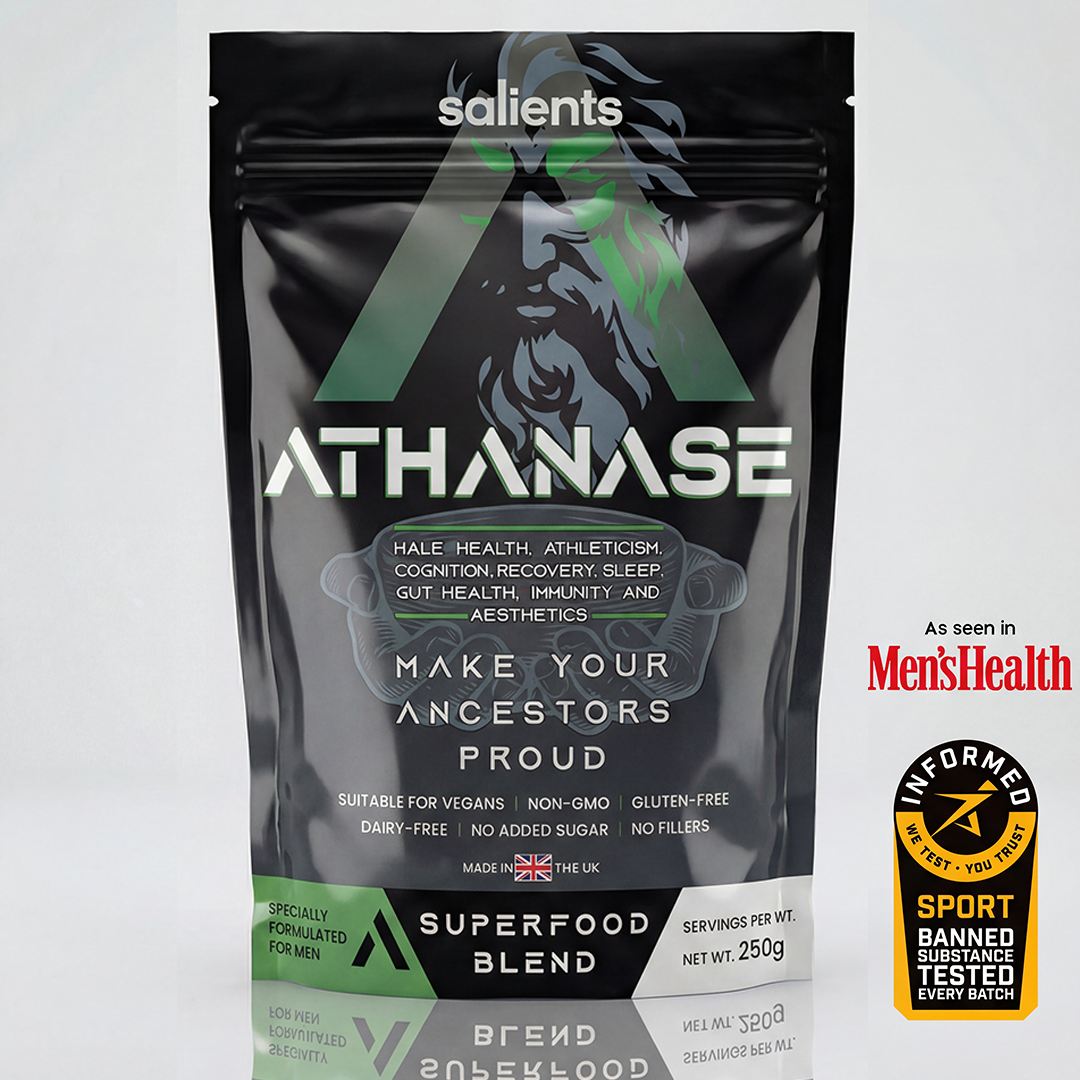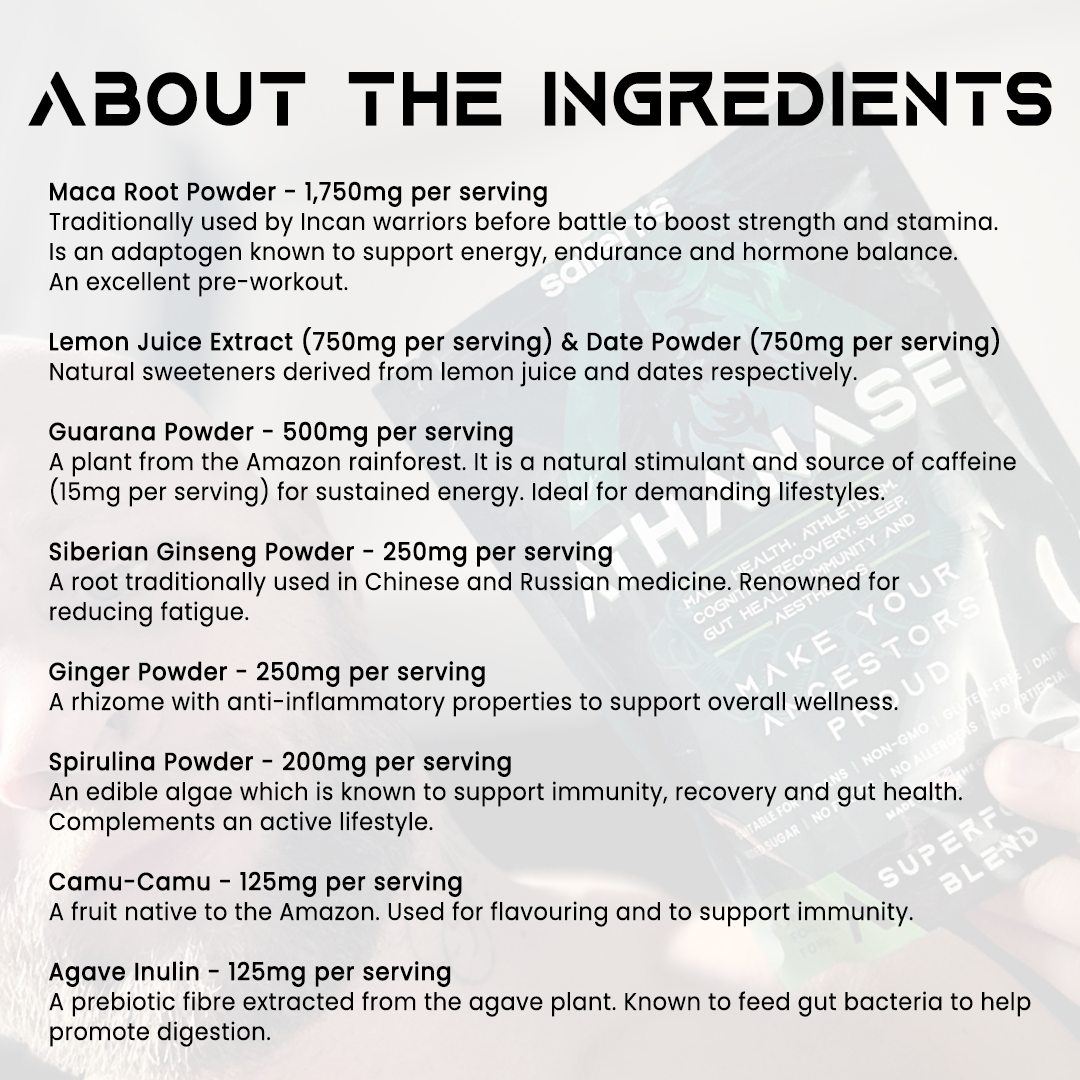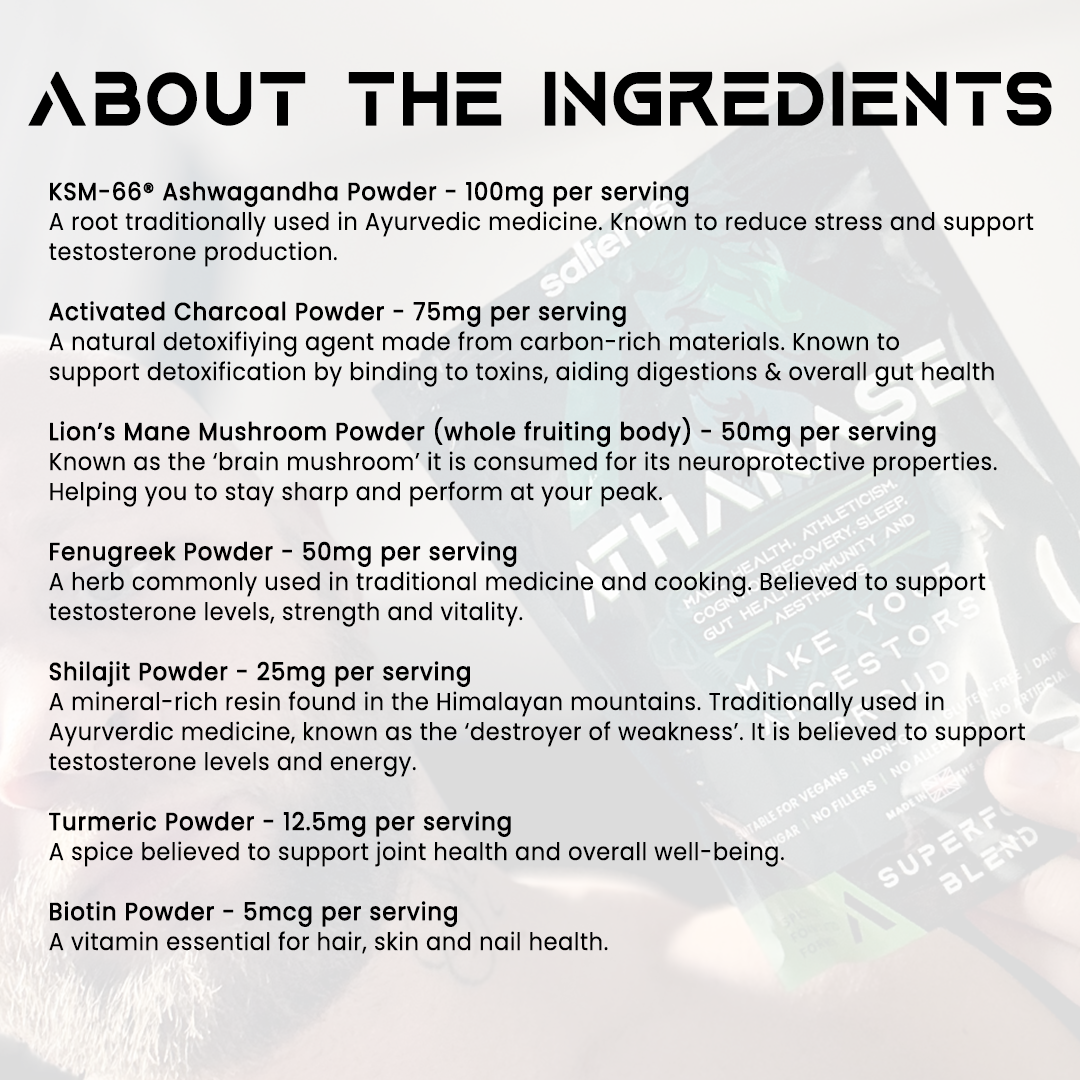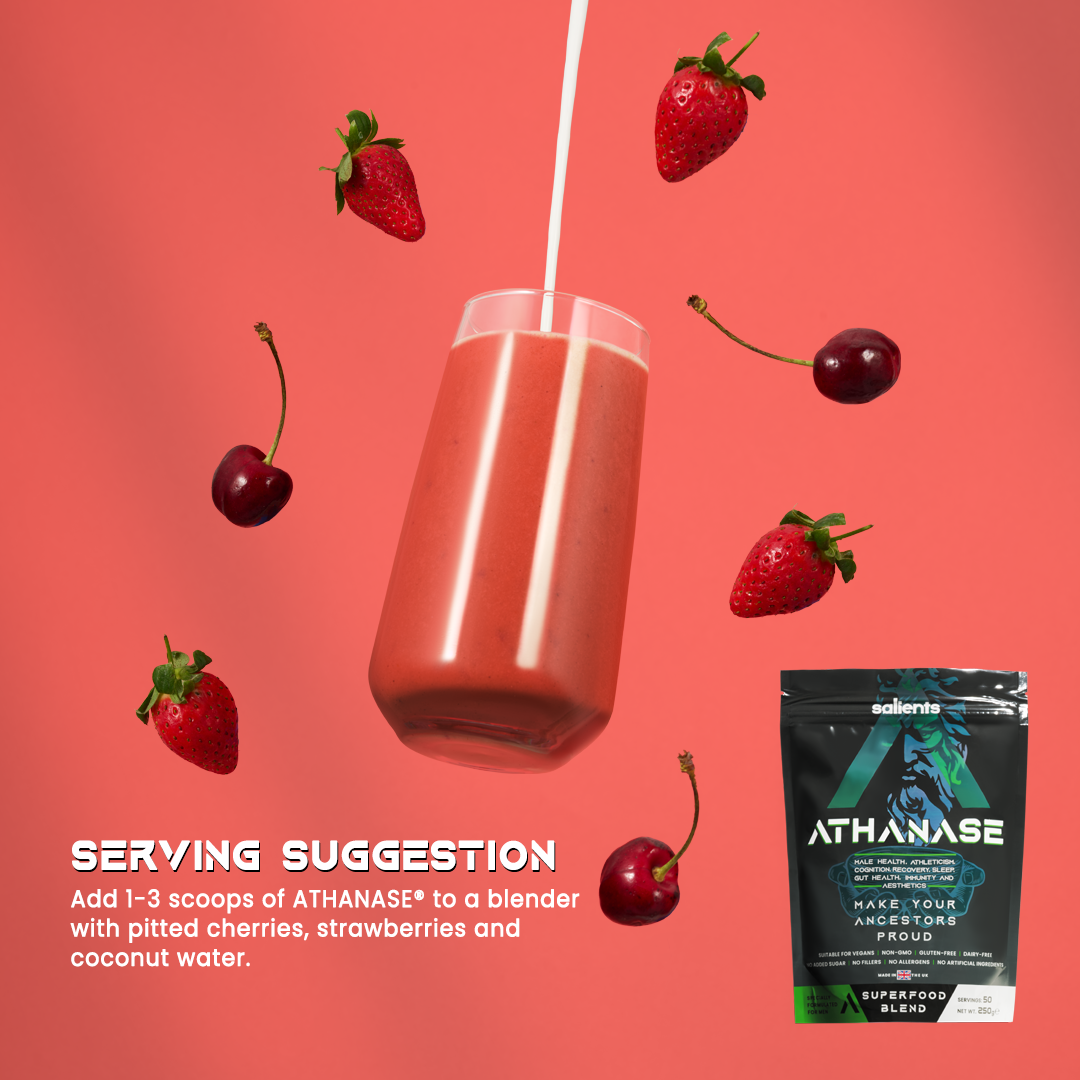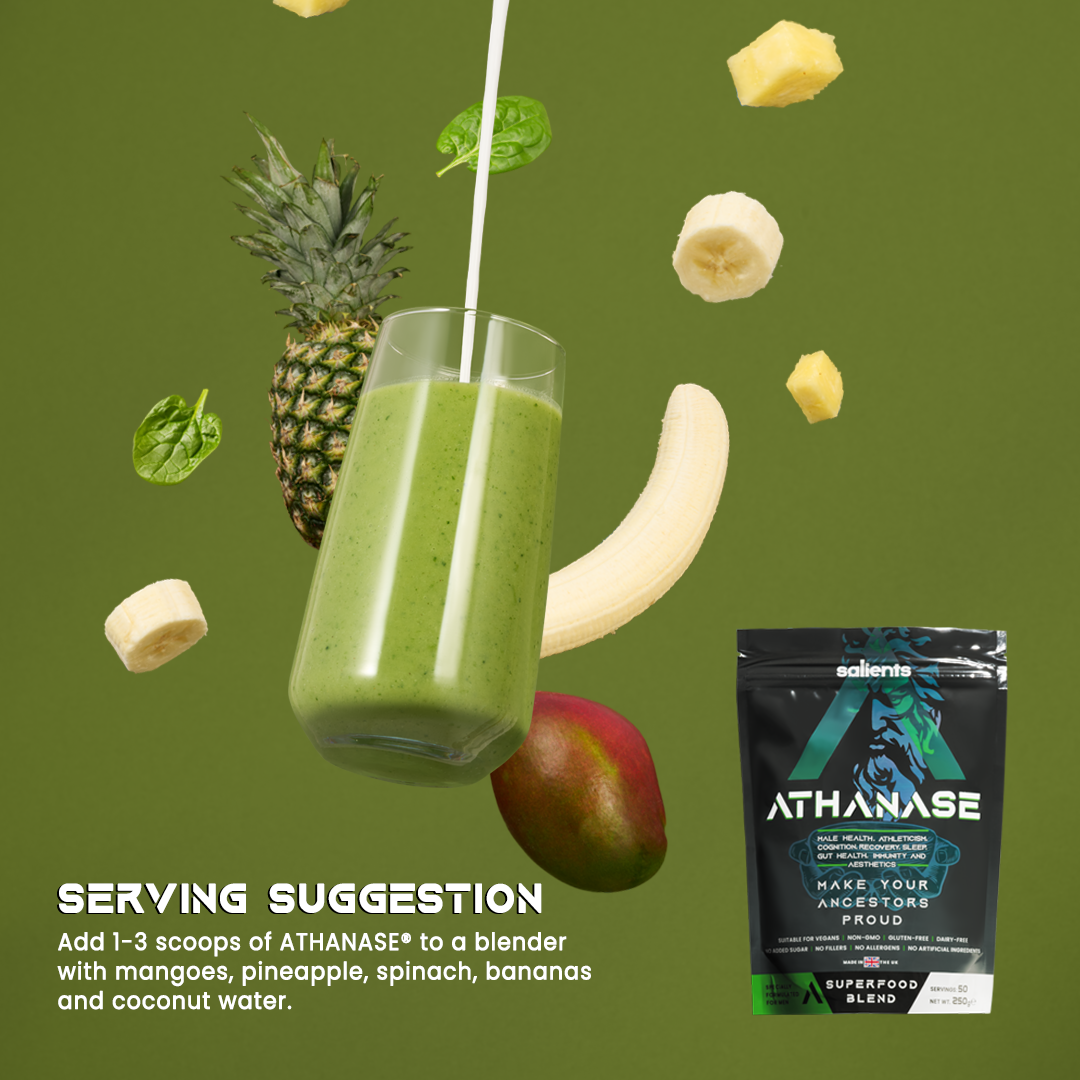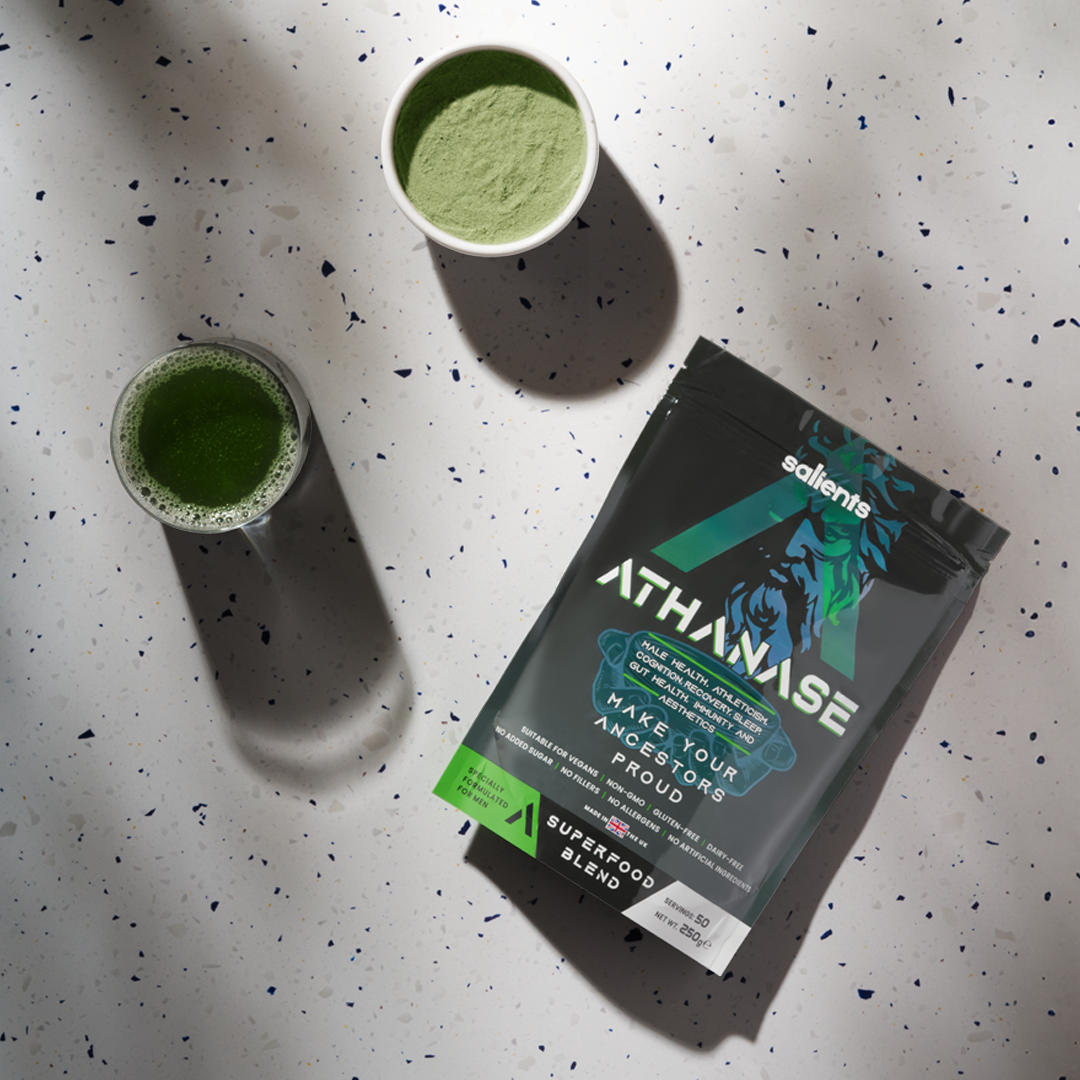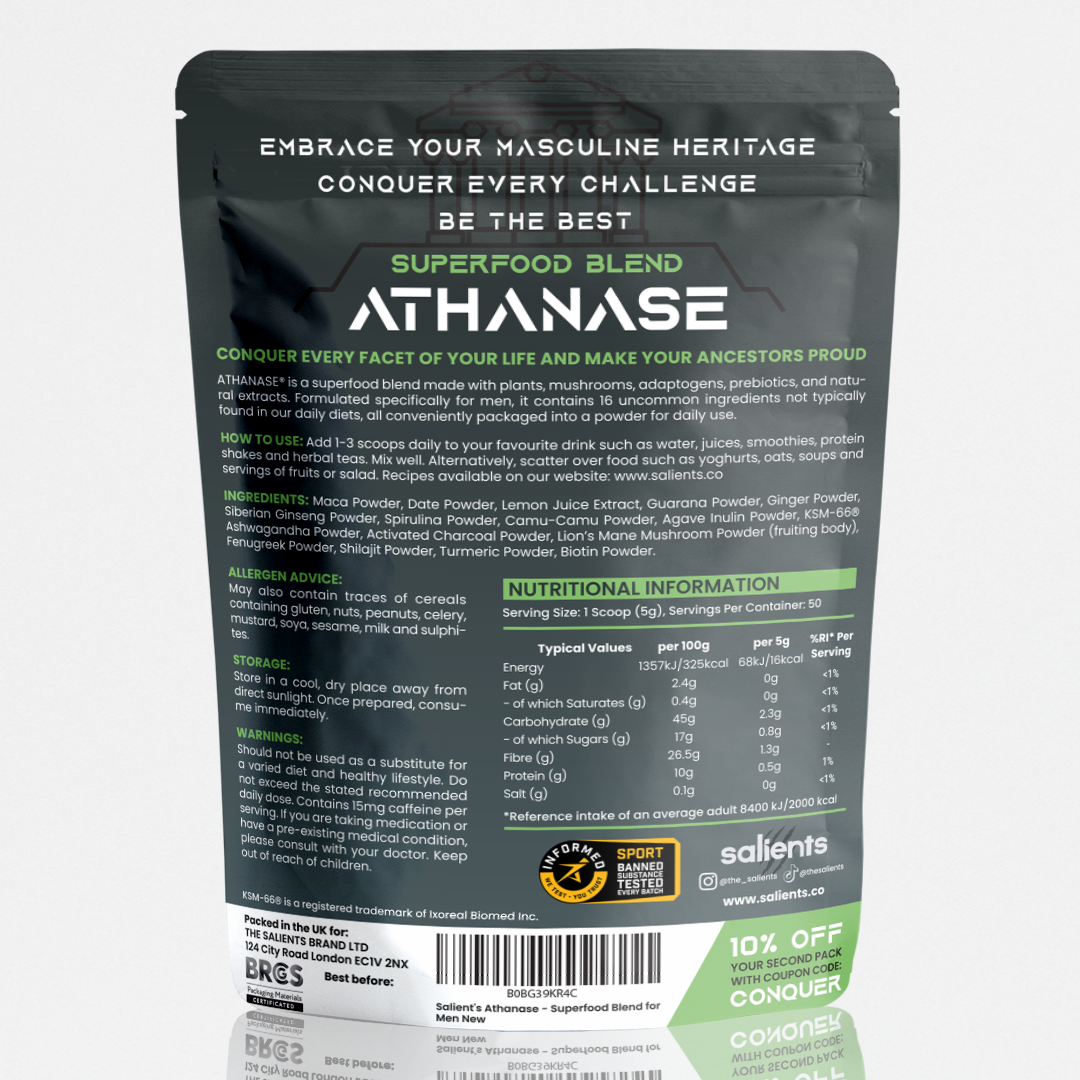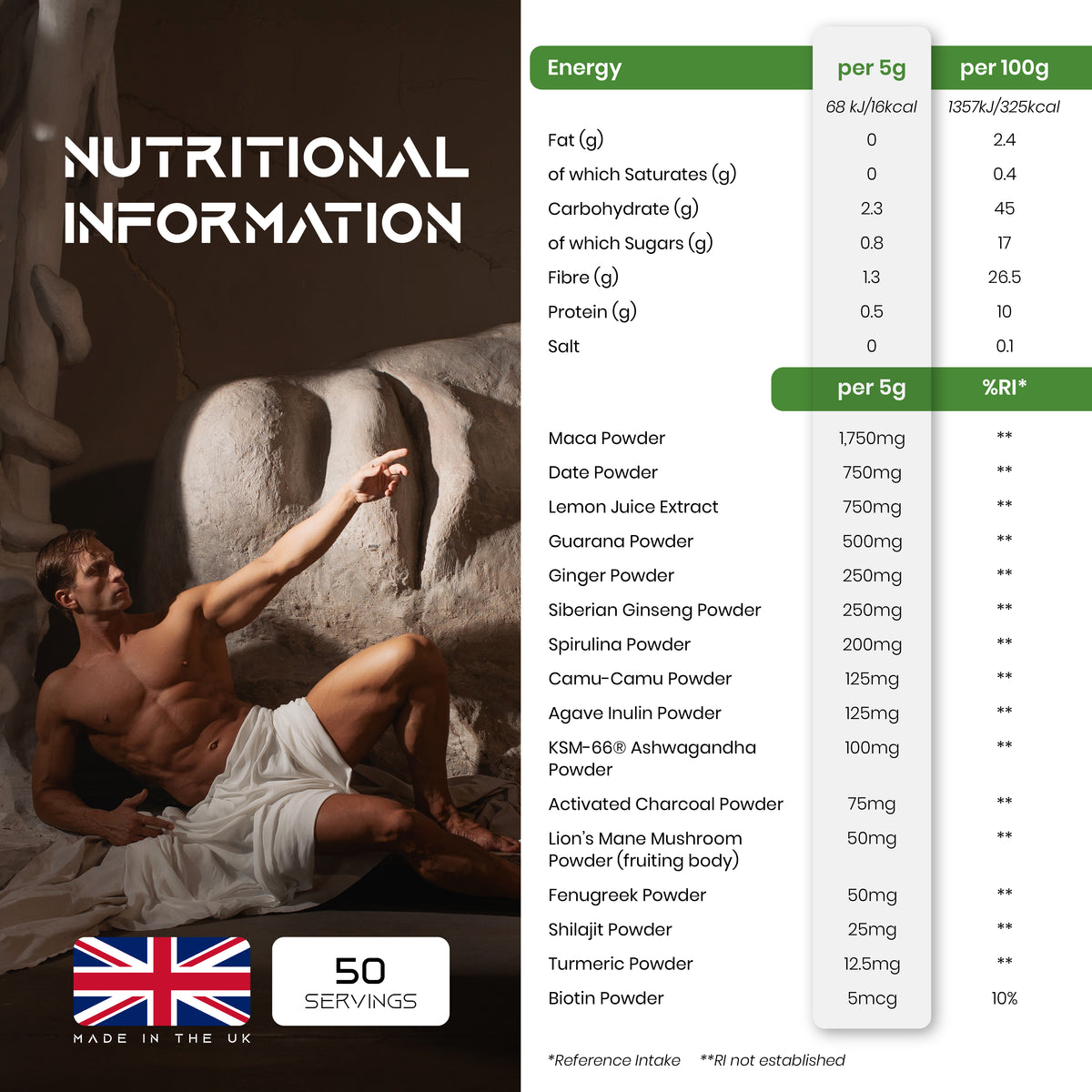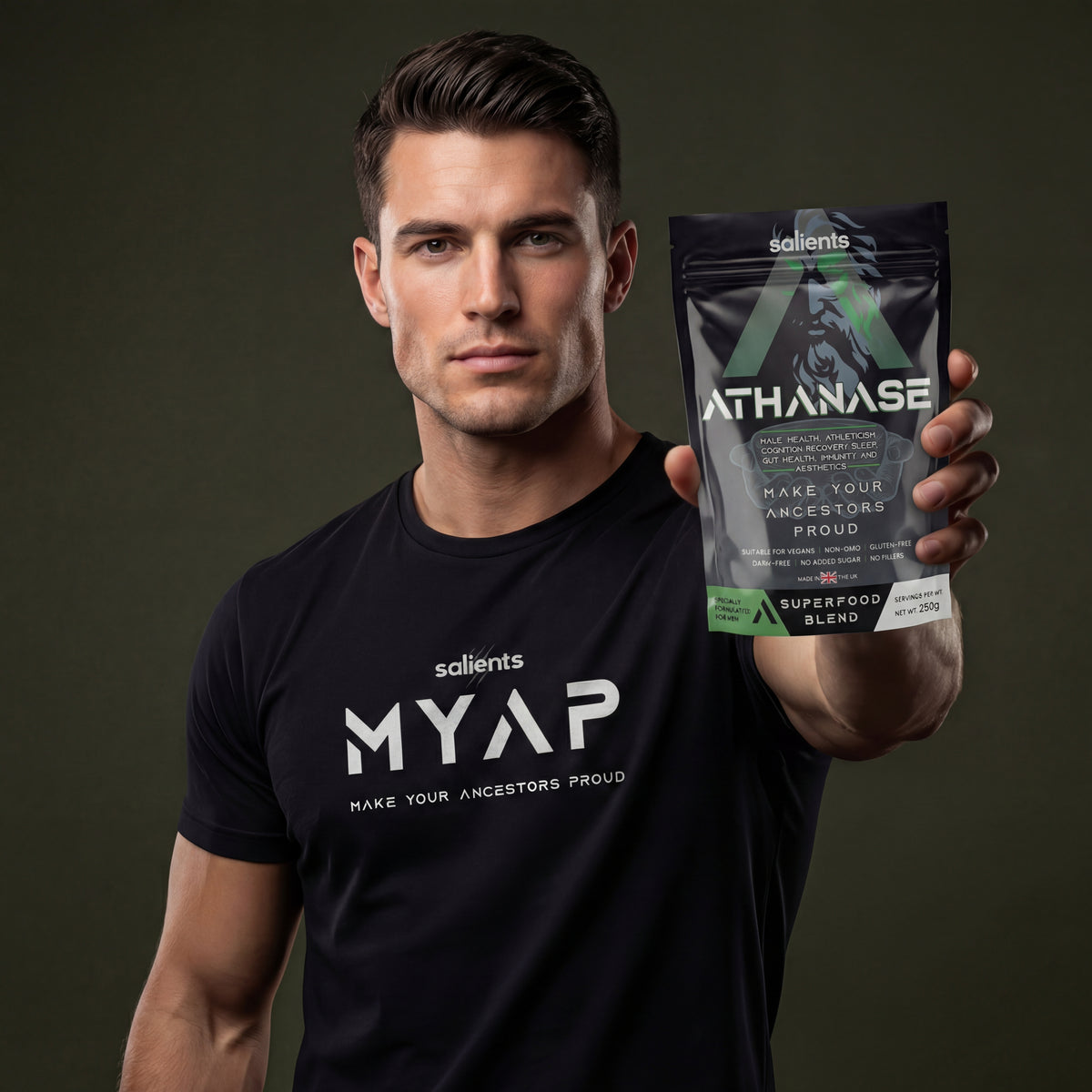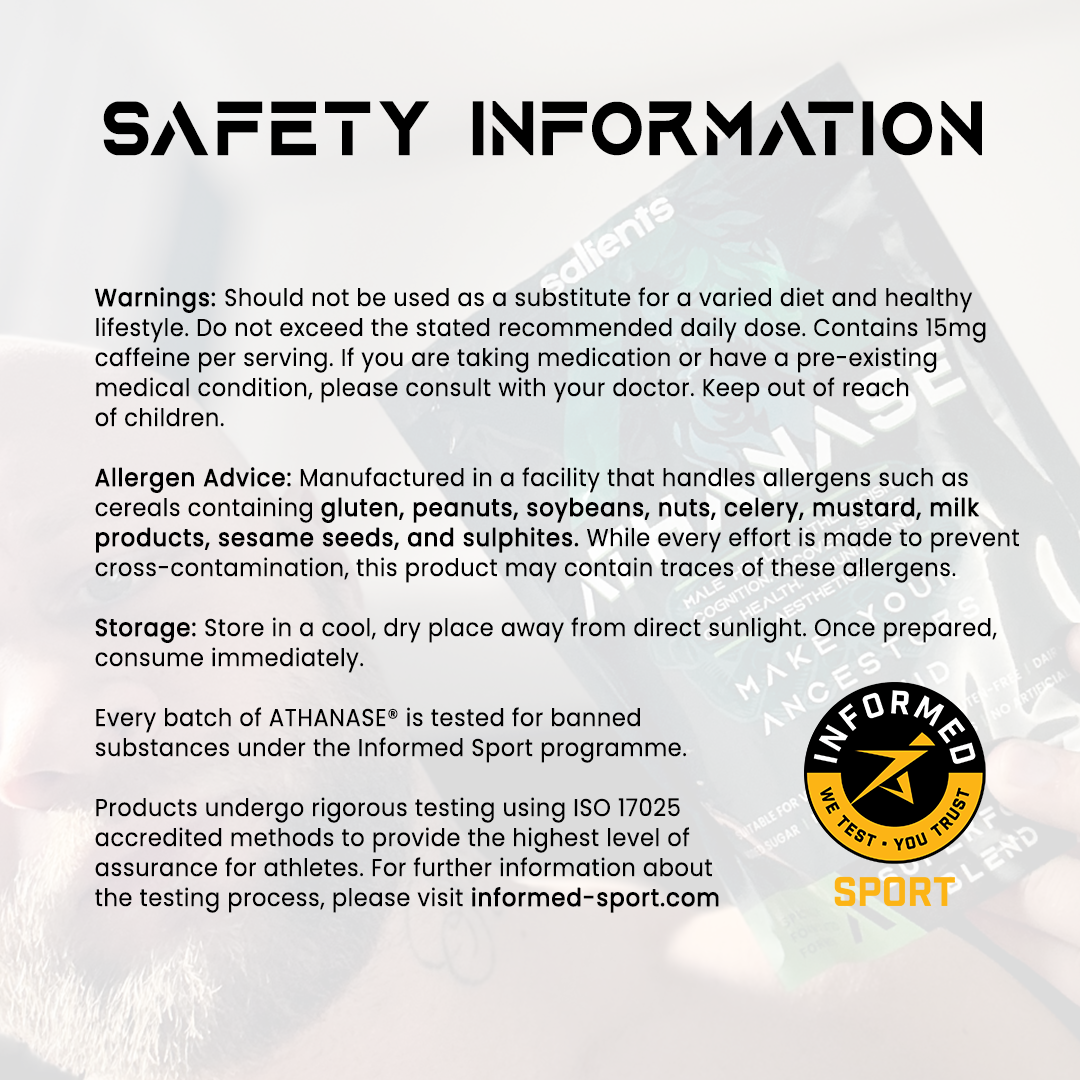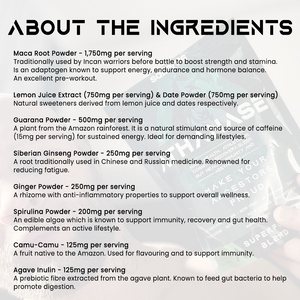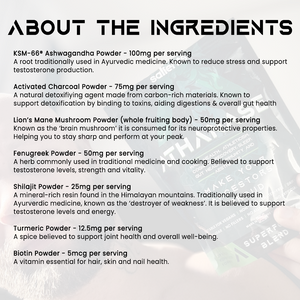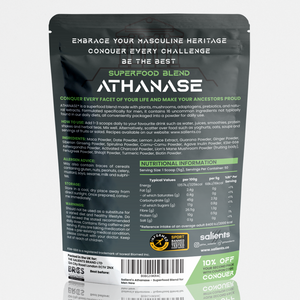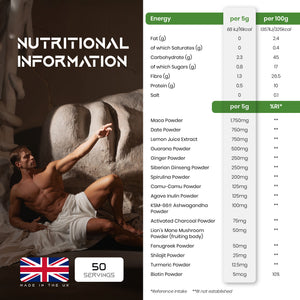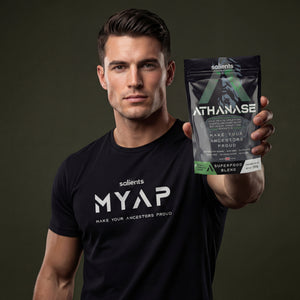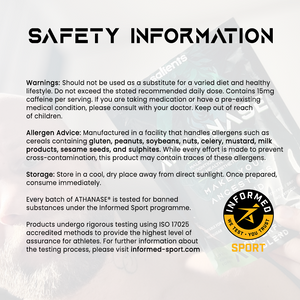Your Cart is Empty
MAKE YOUR ANCESTORS PROUD | FREE SHIPPING ON ALL UK AND US ORDERS
MAKE YOUR ANCESTORS PROUD | FREE SHIPPING ON ALL UK AND US ORDERS
Reduce Hay Fever Symptoms Naturally
by The Salients June 10, 2023 3 min read

If you're one of the millions worldwide who suffer from hay fever, you know all too well the discomfort that comes with it. Itchy eyes, sneezing, and a runny nose interfering with activities. While medications are an option, they may not suit everyone, especially those of us who prefer a more natural approach.
Here are 6 ways that may help reduce some of the symptoms of hay fever naturally.
1. Nasal Irrigation: Saline Rinses and Neti Pots
Nasal irrigation is an effective method to clear your nasal passages, helping to remove allergens and alleviate symptoms. There are two common methods: Neti pots and saline rinses.
A Neti pot, which looks like a small teapot with a long spout, gently flushes a saline solution through your nasal cavity. To use it, you simply tilt your head sideways over a sink, insert the spout into your upper nostril, and pour the saline solution in. The liquid will flow through your nasal cavity and out the lower nostril.
On the other hand, a saline rinse typically uses a squeeze bottle or a bulb syringe to deliver the solution into your nostrils. This method provides a more forceful rinse, which some people find gives a more thorough cleaning of the nasal passages.
Both methods can be effective for hay fever relief, and the choice between them boils down to personal preference and comfort level. Regardless of the method you choose, remember to always use distilled, sterile, or previously boiled water to prevent the risk of infection. Also, make sure to clean your Neti pot or saline rinse bottle regularly to maintain hygiene.
2. Add Natural Antihistamines To Your Diet
Certain foods act as natural antihistamines, which block the effects of histamines—the compound responsible for many allergy symptoms.
Foods rich in vitamin C, such as citrus fruits and berries, can help reduce the production of histamine in your body. Similarly, pineapple, rich in bromelain, may help to reduce nasal and sinus inflammation. Foods like onions and apples, which contain quercetin, can inhibit the release of histamine.
In addition to these, incorporating specific anti-inflammatory ingredients into your diet can also offer relief. Ginger, known for its anti-inflammatory properties, can help to reduce nasal swelling. Fenugreek may also aid in clearing sinus congestion.
ATHANASE® includes beneficial ingredients like turmeric, known for its curcumin content that reduces the release of histamine and acts as a decongestant. It also includes ginger and lemon juice, providing anti-inflammatory effects and a vitamin C boost, respectively.
Furthermore, ATHANASE® contains camu-camu, a superfruit known for its exceptionally high vitamin C content, and fenugreek, which might help to clear sinus congestion. With these ingredients, ATHANASE® offers a blend of natural components that may support your body's fight against hay fever symptoms.
3. Clean Your Environment
Regular vacuuming and dusting your home can help remove allergens that have found their way inside, providing you with a cleaner and more comfortable living space.
4. Hydrate
Staying hydrated can help thin mucus in your nasal passages, easing breathing. Water, herbal teas, or clear broths are great choices. Teas and broths will help soothe a sore/itchy throat, clear congestion or have anti-inflammatory properties.
5. Wear Sunglasses & Change Contact Lenses Routine
A simple yet effective strategy is to wear sunglasses when outdoors. They can help prevent pollen from entering your eyes and triggering hay fever symptoms.
With contact lenses, won't directly protect your eyes from pollen or other allergens in the same way that sunglasses can. However, some people with hay fever may find that wearing glasses or sunglasses instead of contact lenses can help reduce their symptoms. This is because contact lenses can trap allergens, such as pollen, directly against your eyes, exacerbating symptoms like itching and redness.
For those who prefer contact lenses, consider daily disposable lenses during hay fever season. Disposing of your lenses at the end of each day can help prevent allergen build-up.
So, while contact lenses won't provide the barrier that sunglasses do, adjusting your contact lens routine may still help manage hay fever symptoms. As always, it's a good idea to discuss this with your optometrist or healthcare provider.
6. Shower Before Bed
Showering before bed removes allergens from your hair and skin and prevents them from transferring onto your bedding.
The World's First Superfood Blend For Men
ATHANASE
2243 reviews
£28.00
MAKE YOUR ANCESTORS PROUD® with ATHANASE®. A blend of herbs specially formulated for men, to help conquer 7 areas:
| |
MALE HEALTH |
| |
ATHLETICISM |
| |
MOOD & COGNITION |
| |
RECOVERY & SLEEP |
| |
GUT HEALTH |
| |
IMMUNITY |
| |
AESTHETICS |
As seen in Men's Health Magazine and Certified by Informed Sport.
I
Ian Bryer Great Product
Been using this product about 2 weeks and already feeling the benefits
R
Richard Rough taste but mixed with electrolytes or juice its fine. Amazing product for increasing strength and recovery when hitting the gym daily🤘🏼
J
Jordan Brennan Athanase
Fantastic product. Feel the effects pretty quickly. Unexpected improvement in stamina.
I
I Y Athanese
Really good product, stopped using for a week to see if there was any difference and definetly noticed the difference it had been making. I felt less tired throughout the end of the day when taking it.
J
James Green Best on the market
Tastes horrible but with electrolytes and creatine then bobs your uncle
Select a purchase option to pre order this product
Countdown header
Countdown message
Countdown message
DAYS
:
HRS
:
MINS
:
SECS

